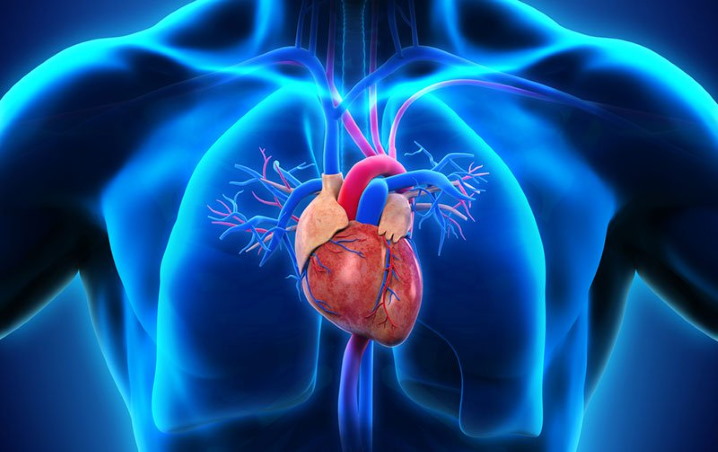The Ultimate Guide To Arogyajivan Medical Tourism For Oncology
The Ultimate Guide To Arogyajivan Medical Tourism For Oncology
Blog Article
The Best Guide To Arogyajivan Medical Tourism For Oncology
Table of ContentsFascination About Arogyajivan Medical Tourism For OncologyOur Arogyajivan Medical Tourism For Oncology DiariesAn Unbiased View of Arogyajivan Medical Tourism For OncologyFascination About Arogyajivan Medical Tourism For OncologyFacts About Arogyajivan Medical Tourism For Oncology UncoveredThe Ultimate Guide To Arogyajivan Medical Tourism For Oncology
With its focus on minimally invasive techniques, advanced imaging, and personalised medication, interventional cardiology is changing the method we come close to heart wellness. At Atrius Heart Care, we are dedicated to offering our patients with the finest quality of treatment, guaranteeing that they receive the finest possible outcomes on their course to heart health and wellness.Heart disease (CVDs) are the leading cause of fatality worldwide. An estimated 17.9 million individuals passed away from CVDs in 2019, standing for 32% of all worldwide deaths (ArogyaJivan Medical Tourism for Oncology). Of these fatalities, 85% resulted from cardiovascular disease and stroke. Over three quarters of CVD fatalities take place in low- and middle-income countries.
The most typical reason for this is an accumulation of fatty down payments on the internal wall surfaces of the capillary that provide the heart or brain. Strokes can be brought on by bleeding from a capillary in the mind or from embolism. One of the most vital behavioral threat variables of cardiovascular disease and stroke are unhealthy diet regimen, physical lack of exercise, cigarette use and hazardous use alcohol.
Getting The Arogyajivan Medical Tourism For Oncology To Work
On top of that the individual may experience problem in breathing or shortness of breath; nausea or vomiting or throwing up; light-headedness or fatigue; an anxiety; and turning light. Ladies are more probable than males to have lack of breath, nausea or vomiting, throwing up, and back or jaw pain. The most common signs and symptom of a stroke is abrupt weak point of the face, arm, or leg, most frequently on one side of the body.
People experiencing these signs and symptoms need to seek healthcare instantly. Rheumatic cardiovascular disease is brought on by damage to the heart valves and heart muscle mass from the swelling and scarring created by rheumatic high temperature. Rheumatic high temperature is triggered by an irregular action of the body to infection with streptococcal bacteria, which normally begins as an aching throat or tonsillitis in youngsters.
The Buzz on Arogyajivan Medical Tourism For Oncology

Patients with cardio disease need to have accessibility to suitable technology and drug. Fundamental medications that need to be readily available consist of: aspirin; beta-blockers; angiotensin-converting enzyme inhibitors; and statins. An intense event such as a heart attack or stroke need to be immediately taken care of. Sometimes, surgical operations are required to deal with CVDs. They include: coronary artery bypass; balloon angioplasty (where a tiny balloon-like device is threaded via an artery to open the obstruction); shutoff repair service and substitute; heart hair transplant; andartificial heart operations.
Arogyajivan Medical Tourism For Oncology Fundamentals Explained
During the past 2 years, major strides have actually been made in the medical diagnosis and therapy of heart condition. Nuclear cardiology has actually played a critical role in identifying heart condition, analyzing condition seriousness, and anticipating end results.
The blood vessels become anchor slim when fatty deposits construct up inside the arterial wall surface. This is the process of view it atherosclerosis. When the arteries end up being stopped up, the blood circulation to the heart muscular tissue is impaired and a cardiovascular disease can happen. Nuclear cardiology research studies make use of noninvasive strategies to analyze myocardial blood flow, evaluate the pumping feature of the heart as well as imagine the dimension and place of a cardiac arrest.

Examine This Report about Arogyajivan Medical Tourism For Oncology
Radionuclide ventriculography is a noninvasive research that supplies info about the pumping function of the heart. In individuals with coronary artery disease and in those that have actually had a cardiac arrest, the assessment of the pumping feature of the heart (likewise recognized as the ejection fraction) is important in the prediction of both lasting and temporary survival.
These techniques can additionally offer details about the function of the shutoffs of the heart, the honesty of all the cardiac chambers and can be used to keep an eye on the result of different medications on the heart muscle mass (in individuals with cancer that are treated with chemotherapy). The examination of heart feature with radionuclide ventriculography is precise and noninvasive and remains to play a critical role in anticipating end results in individuals with heart condition.
Nuclear cardiology strategies can be used to figure out which areas of the heart muscular tissue have been harmed by official source infection or by a cardiovascular disease. These techniques can likewise be used to keep track of the status of the heart muscle in the client after cardiac transplantation. ArogyaJivan Medical Tourism for Oncology. The heart has its own nerve system, which is critical for the proper performance of the heart muscular tissue
An unusual heart price and chaos of the typical heart rhythm can manifest this problem. Imaging representatives are infused right into the blood stream and then the nerves of the heart can be imaged using a gamma camera. The info gotten from these noninvasive research studies can be used in the administration of clients with cardiovascular disease, specifically cardiac arrest.
Arogyajivan Medical Tourism For Oncology Things To Know Before You Buy
These researches can detail the heart muscle that is not obtaining sufficient blood flow due to the blockage in the arteries of the heart. These researches can likewise show the heart muscle that has actually been scarred from past heart strikes, and likewise what has been harmed yet has the prospective to recover if a bypass surgical procedure or an angioplasty is done.

, which consists of your heart, arteries, and capillaries.
Report this page